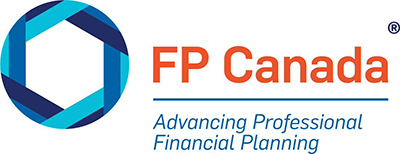Being aware of bias can help planners increase the likelihood that their recommendations will have outcomes that are highly favourable to clients.
TORONTO, Dec. 15, 2022 /CNW/ - Financial planning clients rightly expect advice that's tailored to their goals and circumstances – and free of bias. Of course, financial planners, like all human beings, bring their own backgrounds and tendencies to the decision-making process.
The question is, what impact are bias and human tendencies having on the financial planning recommendations consumers receive?
New research from the FP Canada Research Foundation™ and HEC Montréal explores human bias
To gain insight into the impacts of human bias, the FP Canada Research Foundation funded a survey conducted by HEC Montréal researchers Phillipe d'Astous, Irina Gemmo, and Pierre-Carl Michaud.
One of the major findings is that planners are more likely to recommend products if they own or are licenced to sell them or their spouse owns them. There are examples of familiarity bias, whereby individuals opt for familiar options even when they're not the most likely to deliver the most favourable outcomes.
Planners are also more likely to recommend products after clients have inquired about them, and they also tend to assign importance to the gender of clients even when gender isn't relevant to the recommendation.
A closer look at the research findings
The planner survey presented client vignettes alongside responses phrased as recommendations. It was completed by 1,044 financial planners across Canada, and respondents were diverse in terms of age, gender, education, places of employment, and areas of specialization.
Researchers examined the potential impact of four major factors on recommendations: the degree of involvement from the client, the client's gender, the planner's compensation as it relates to their recommendations, and the extent to which planners tend to recommend products they or their spouse own or that they are licensed to sell.
Here are just a few key takeaways from the survey:
- Planners are far more likely to suggest universal life insurance, mutual funds, annuities, segregated funds, and ETFs when they own these products.
- Holding a license to sell mutual funds, segregated funds, long term care insurance, or ETFs significantly increases the likelihood of recommending these products.
- When a client asks about a specific product, planners are about 4% more likely to recommend it if they have a license to sell it.
- Planners are about 4% less likely to recommend mutual funds to female clients as compared to male clients.
Bias is common – but it's not necessarily a bad thing
Financial planners who are unknowingly affected by bias may provide recommendations in planning areas where a client doesn't need them, or in one area to the detriment of others. For this reason, the research from the FP Canada Research Foundation and HEC Montréal has important implications – but it's not meant to imply that eliminating bias is the goal.
"This research is a reminder that all individuals are prone to bias, even financial planners," says Joan Yudelson, Executive Director, FP Canada Research Foundation. "It's not necessarily a negative thing, but it does mean planners should remain vigilant. By being aware of potential biases, they can help ensure that the recommendations they're making are truly in their clients' best interests."
How planners can identify bias and strengthen recommendations
A recommendation may align with a planner's biases and still be the most favourable option for their client. However, it's always better for planners to be aware of biases and carefully consider whether they're affecting prospective advice.
One helpful approach is leveraging the Strategy Validation Tool from the FP Canada Institute™, which allows planners to quickly and easily test for biases. CFP® professionals and QAFP™ professionals can access this tool through their FP Canada portal.
The FP Canada Research Foundation website is also where you'll find the research paper, research paper appendix, executive summary and practice notes, which are designed to help financial planners apply insights from the research.
The FP Canada Research Foundation is an independent registered charity dedicated to funding, promoting, and disseminating financial planning research to enhance the well-being of all Canadians. The Foundation is committed to technical research that examines and challenges current practices in financial planning, behavioural research that examines the impact of human behaviour on effective financial planning, and research that examines the benefits of financial planning on society as a whole.
SOURCE FP Canada

For media inquiries, please contact: Megan Harman, FP Canada, [email protected]

Share this article